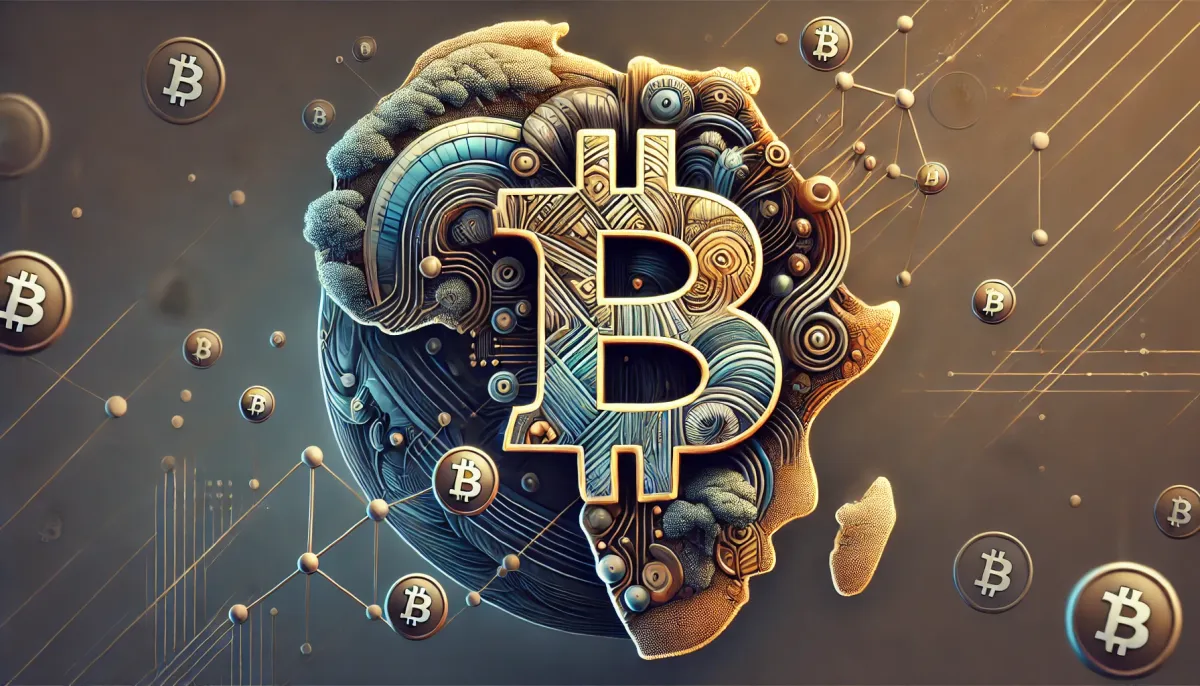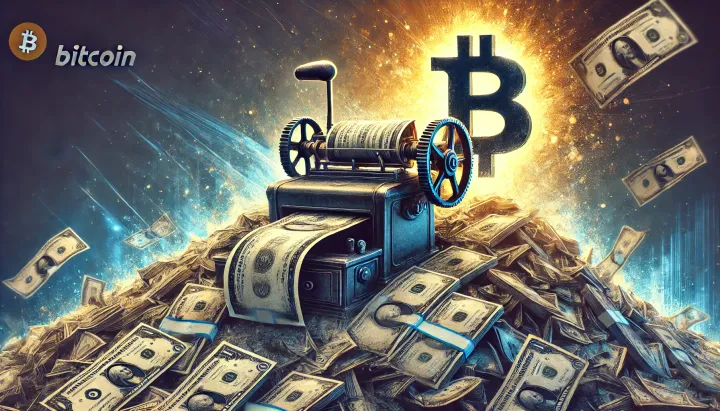Driving Bitcoin Adoption in Conflict Zones: Lessons from the DRC
The November 21, 2024 episode of the PlanB Network podcast features Gloire Wanzavalere discussing Bitcoin’s transformative potential in the Democratic Republic of Congo (DRC), a region marked by conflict, economic instability, and hyperinflation.

- My 'briefing notes' summarize the content of podcast episodes; they do not reflect my own views.
- They contain (1) a summary of podcast content, (2) potential information gaps, and (3) some speculative views on wider implications.
- Pay attention to broadcast dates (I often summarize older episodes)
- Some episodes I summarize may be sponsored: don't trust, verify, if the information you are looking for is to be used for decision-making.
Summary
The Democratic Republic of Congo (DRC) presents a case study in Bitcoin’s transformative potential. The November 21, 2024 episode of the PlanB Network podcast features Gloire Wanzavalere discussing how, amid systemic corruption, hyperinflation and violence, grassroots initiatives showcase Bitcoin’s ability to empower communities. These efforts focus on education, humanitarian aid, and energy monetization, offering a path to financial independence and sustainable development.
Take-Home Messages
- Bitcoin fosters financial independence: It provides an alternative to the hyperinflationary Congolese franc and empowers marginalized communities.
- Energy innovation through mining: Bitcoin mining transforms abandoned hydroelectric plants into economically viable assets.
- Grassroots education is key: Local initiatives focus on addressing cultural and linguistic barriers to Bitcoin adoption.
- Decentralized aid enhances trust: Bitcoin ensures transparency and efficiency in humanitarian assistance programs.
- Entrepreneurship builds resilience: Bitcoin microloans empower refugee communities, replacing predatory lending practices with sustainable opportunities.
Overview
The DRC faces persistent economic instability, political corruption, and violent conflict. Bitcoin adoption is emerging as a solution, offering financial independence and resilience to individuals and communities. Hyperinflation has devalued the Congolese franc, making Bitcoin an attractive alternative for saving and transactions. However, adoption remains limited by technological and educational barriers, particularly in rural areas, a challenge mirrored in many parts of Africa.
Grassroots efforts in the DRC demonstrate Bitcoin’s transformative impact. For example, refugee aid programs distribute Bitcoin and offer microloans to empower women entrepreneurs. By replacing exploitative lending systems with sustainable alternatives, these initiatives reduce dependency on external aid and foster financial autonomy.
The integration of Bitcoin mining with energy projects addresses infrastructural challenges. Abandoned hydroelectric facilities can become viable through mining, providing immediate revenue while supporting long-term electrification. This model showcases how Bitcoin can drive industrialization and improve living standards in conflict-prone regions.
Despite these successes, challenges persist. Security risks, limited internet access, and educational gaps hinder broader Bitcoin adoption. Local leaders emphasize the importance of community-driven initiatives and long-term education to overcome these barriers. With continued grassroots momentum and international collaboration, Bitcoin has the potential to transform the DRC’s economic and social landscape.
Stakeholder Perspectives
- Local Communities: Seek financial tools like Bitcoin to hedge against hyperinflation and corruption.
- Entrepreneurs and Refugees: Leverage Bitcoin microloans to build sustainable livelihoods and reduce reliance on exploitative lending.
- Humanitarian Organizations: Value Bitcoin’s transparency and efficiency for distributing aid in conflict zones.
- Energy Producers: See Bitcoin mining as a means to monetize surplus electricity and fund rural electrification.
- Policymakers: Remain wary of Bitcoin’s regulatory implications and its challenge to centralized monetary systems.
Implications
Bitcoin adoption in the DRC demonstrates its ability to address systemic failures and empower marginalized populations. By promoting financial independence and creating entrepreneurial opportunities, Bitcoin helps communities reduce dependency on failing systems and foreign aid. Its decentralized nature makes it particularly valuable in regions with weak institutions and widespread corruption.
Energy integration through Bitcoin mining offers a scalable solution for rural electrification and industrial growth. This approach not only generates immediate revenue but also builds long-term economic resilience. However, overcoming security risks, corruption, and educational barriers will require sustained efforts and collaboration among stakeholders.
Future Outlook
The future of Bitcoin in the DRC depends on expanding grassroots education and addressing infrastructural deficiencies. Investments in localized education programs, tailored to the cultural and linguistic needs of communities, are critical for scaling adoption. International partnerships can further amplify these efforts by providing resources and expertise.
Energy-focused Bitcoin mining projects could serve as a catalyst for sustainable development across the region. By monetizing surplus energy and funding electrification, these initiatives can drive industrialization and improve living standards. However, addressing security challenges and fostering trust among stakeholders will remain key to unlocking Bitcoin’s full potential in conflict zones.
Information Gaps
- How can Bitcoin mining projects improve the economic viability of abandoned hydroelectric plants in the DRC? This question addresses the scalability of Bitcoin mining for rural electrification, with potential implications for energy and economic policies.
- What are the most effective methods for educating diverse populations in the DRC about Bitcoin’s technical and financial aspects? Identifying successful education strategies will enable tailored approaches to Bitcoin adoption in culturally and linguistically diverse regions.
- How can Bitcoin reduce dependency on traditional international aid for humanitarian crises? Exploring this question can reshape the role of decentralized systems in global aid distribution and funding transparency.
- What steps can be taken to secure Bitcoin operations in regions with high violence and instability? Developing practical security solutions is crucial for sustaining Bitcoin initiatives in conflict-prone areas.
- What is the impact of Bitcoin microloans on the financial independence of refugee populations? Understanding this dynamic will inform scalable solutions for fostering entrepreneurship and resilience in vulnerable communities.
Broader Implications for Bitcoin
Bitcoin Adoption in Fragile States
The DRC exemplifies how Bitcoin can serve as an alternative financial system in fragile states. Bitcoin adoption offers a hedge against hyperinflation, allowing individuals to preserve wealth in the absence of reliable local currencies. This use case highlights Bitcoin's potential as a monetary tool in regions with weak financial infrastructure, positioning it as a critical asset for global economic resilience.
Energy Monetization through Bitcoin Mining
Bitcoin mining demonstrates an innovative solution to fund energy projects in underdeveloped regions. By monetizing surplus electricity, Bitcoin miners create immediate revenue streams that support infrastructure investments, such as rural electrification. This model can be replicated in other energy-insecure nations, fostering sustainable development and industrial growth globally.
Humanitarian Aid and Decentralization
Bitcoin’s transparency and efficiency make it an ideal tool for humanitarian aid distribution. Decentralized systems reduce administrative inefficiencies and ensure that more funds reach beneficiaries. If broadly adopted, Bitcoin could revolutionize global aid systems, fostering greater trust and reducing dependency on traditional intermediaries.
Resilience Against Systemic Failures
The DRC highlights Bitcoin’s ability to function independently of fragile institutions, making it a powerful tool for individuals in politically unstable regions. Globally, Bitcoin could provide a parallel financial system for populations affected by governance failures, natural disasters, or war. Its decentralized nature ensures access to economic tools even in the most adverse conditions.
Supporting Refugee Economies
Bitcoin-powered microloans and entrepreneurial initiatives offer a blueprint for rebuilding refugee economies. These programs replace predatory lending with sustainable financial opportunities, enabling displaced populations to achieve economic independence. Scaling such efforts could redefine humanitarian responses, creating self-reliant communities worldwide.
Bitcoin’s Role in Mitigating Aid Dependency
Bitcoin enables vulnerable communities to reduce reliance on foreign aid by fostering local entrepreneurship and economic independence. Decentralized systems shift the focus from short-term relief to sustainable development, empowering regions to create their own financial solutions. This evolution could redefine international development paradigms.
Security Innovations for Conflict Zones
Security risks in conflict zones challenge Bitcoin adoption but also drive innovation. Solutions such as multi-signature wallets and decentralized infrastructure could protect users from theft and violence. These innovations would have global applicability, enhancing Bitcoin's resilience in high-risk environments.
The Global Impacts of Grassroots Adoption
Grassroots-driven Bitcoin initiatives in the DRC illustrate how bottom-up approaches can succeed where institutional systems fail. Expanding this model globally could democratize financial access, empowering billions without bank accounts. Grassroots efforts may become a key driver for Bitcoin’s long-term adoption, reinforcing its relevance across diverse geographies.



Comments ()